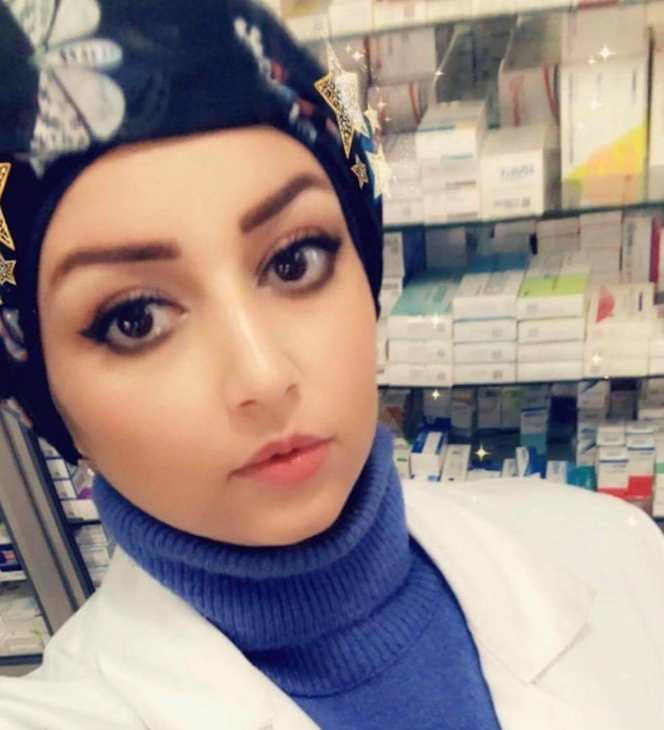- General Dermatology
- Eczema
- Chronic Hand Eczema
- Alopecia
- Aesthetics
- Vitiligo
- COVID-19
- Actinic Keratosis
- Precision Medicine and Biologics
- Rare Disease
- Wound Care
- Rosacea
- Psoriasis
- Psoriatic Arthritis
- Atopic Dermatitis
- Melasma
- NP and PA
- Skin Cancer
- Hidradenitis Suppurativa
- Drug Watch
- Pigmentary Disorders
- Acne
- Pediatric Dermatology
- Practice Management
- Prurigo Nodularis
Article
The Roses of Baghdad
From pandemic concerns to cultural limitations, aesthetic physician Dr. Annalisa Calisti shares the story of two Iraqui female physicians who have created access for women to medicine and cosmetic surgery, all while respecting tradition.
It is sometimes difficult to understand. It is difficult to put yourself in the shoes of...
"My Iraq is not that of bombs and soldiers, it is much more."
So writes an Iraqi journalist and photographer who now lives in Palermo, southern Italy. If you type the name of the Middle Eastern state into Google you will see images of rubble, American soldiers, and Saddam Hussein.
But Iraq is much more.
His photos of Iraq show spectacular sunsets, the lights of Baghdad, “the city of a thousand and one nights,” and the splendid market of Kirkuk.
Working with the Middle East, I got to know a fervent and fertile reality: young doctors hungry for news, science, fame; young plastic surgeons, dermatologists and ambitious aesthetic doctors, highly educated, full of inventiveness, masters of the English language and always bold and proud of their countries of origin and their own very rich culture.
Aesthetic medicine in these contexts has a dual aspect:
It is cutting edge on the one hand, but suffers on the other from an important limitation, i.e., the fact that, in some cases, male doctors cannot treat female patients, so the access to beauty treatments is, in a certain sense, more difficult.
Patients may therefore have greater difficulty in identifying a doctor who has the right skills and who is also of their own sex. If this represents a limitation during the quieter periods, one can well imagine what difficulties our colleagues and patients face in countries with political instability first, then with the COVID-19 pandemic-limited private clinical activity.
Women of Invention
The protection of Iraqi citizens currently passes through a partial lock-down, for which the activity is limited to four working days per week, the security controls follow international standards, and inevitably there has been, as also in Italy, a decline in appointments for aesthetic visits and treatments.
In times of difficulty, young people do not react by crying and complaining; they react with inventiveness and the search for solutions. It is in this context that I met the two Roses from Baghdad, Mina Alqadily and Marwa Al-Juaifary, an aesthetic doctor the first, the other a pharmacist. Like the fantastic “One Thousand and One Nights” Shahrazād who, thanks to her intelligence and creativity, manages to save her life from the fury of King Shāhriyār, these sweet and intelligent women have sought and found the solution to the difficulties of the pandemic.
They founded their own company with the creation of a medical and cosmetic surgery clinic in Baghdad, and they had a simple and ingenious idea: to create a social group dedicated to female doctors and patients where female aesthetic doctors could come together, exhibit their jobs, describe their skills, all freely accessible to women who can ask for information, send photos, express their appreciation or vice versa and freely consult the doctors of the group.
Mina Alqadily

A simple but ingenious idea that allows respect for traditions and has increased the activity of the two female doctors and their colleagues.
Their social page, "Filler and Botox Bring Us Together," reached 3300 members in the first month and immediately led to an almost vertical increase in requests for appointments, not only for their “rival clinic” but also for all the other doctors registered in the group. Our heroines also have male consultants for different and complementary services but who do not have access to their Facebook page.
Marwa Al-Juaifary

The possibility is therefore created for patients to access the services of medicine and cosmetic surgery, while respecting the cultural tradition of many families. In the final scene of the "Thousand and One Nights," much like the king who falls in love with Shahrazād's inventiveness and intelligence, I too was conquered by the tenacity of the two Roses of Baghdad, who, with a spirit of cooperation and perseverance, also won the challenge of the lock-down.





